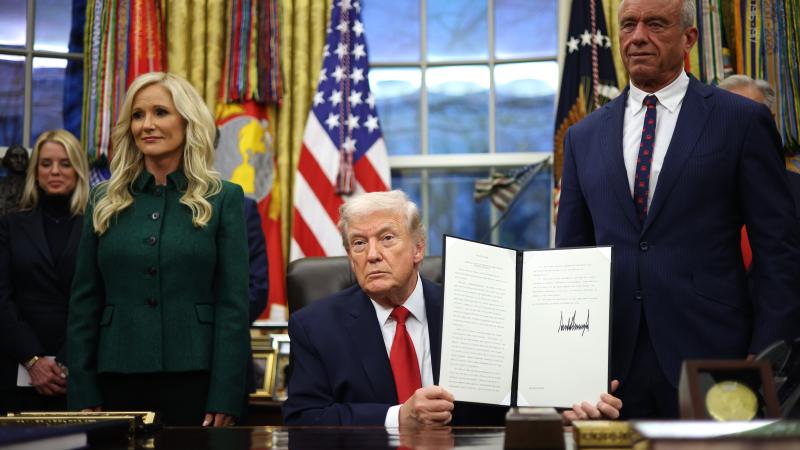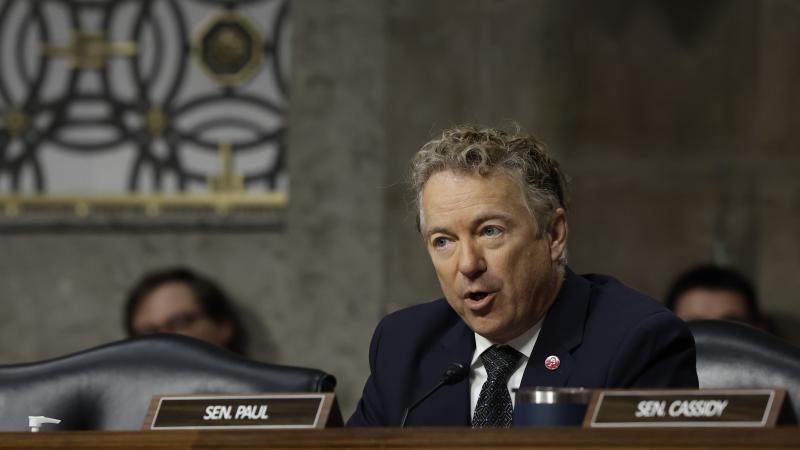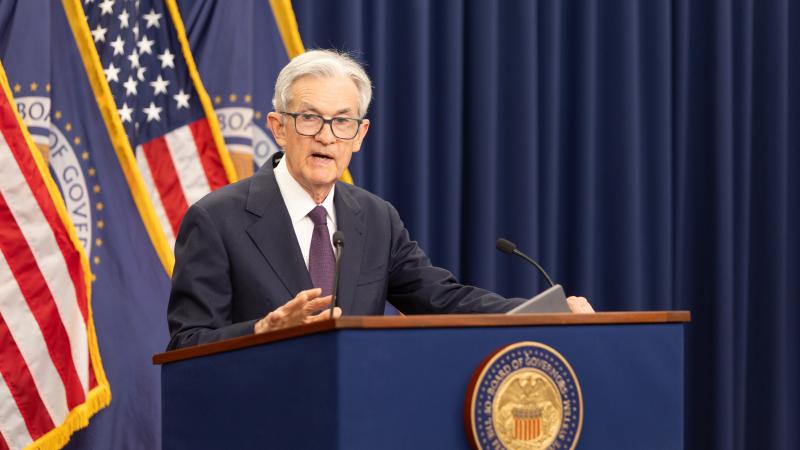Report: Biden has taken over 200 actions against US oil
Within a week of being in office, Biden issued additional moratoriums on new oil and gas leases on public lands or in offshore waters and imposed new regulations related to permitting and leasing practices, which were tied up in the courts for years.
President Joe Biden and his administration have taken over 200 actions against the U.S. oil and natural gas industry as energy prices have gone up, according to a new report.
“President Biden and Democrats have a plan for American energy: make it harder to produce and more expensive to purchase,” the Institute for Energy Research states in a new report. “Since Mr. Biden took office, his administration and its allies have taken over 200 actions deliberately designed to make it harder to produce energy here in America.”
The analysis highlights actions Biden took on his first day in office, listing them chronologically through March of this year. The first act was canceling the Keystone XL pipeline, issuing a moratorium on all oil and natural gas leasing activities in the Arctic National Wildlife Refuge and revoking Trump administration executive orders that decreased regulations in order to expand domestic production.
Within a week of being in office, Biden issued additional moratoriums on new oil and gas leases on public lands or in offshore waters and imposed new regulations related to permitting and leasing practices, which were tied up in the courts for years. It was not until last month that a federal court upheld the first oil and natural gas lease sale on federal lands. Last December, the Fifth Circuit also ruled that Gulf lease sales must go forward.
Other actions ahead of the midterm elections include threatening to tax the oil and natural gas industry, blaming them for profiteering. Roughly six months before the general election, his administration has proposed $110 billion tax hikes on oil, natural gas and coal. In response, U.S. Sen. John Barrasso, R-Wyo., led a coalition of 24 senators expressing “grave concern” about his “continued hostility towards American energy production.”
IER published the report after the latest action taken to increase the cost of U.S. oil production and cancel plans to restock the Strategic Petroleum Reserve. The SPR has been depleted to roughly half of what it was when he first took office.
“President Biden had the chance to top up the SPR when prices were still low during the pandemic, but anti-oil-and-gas ideologues within the administration couldn’t bear to do anything that would help out producers when demand was low,” Kathleen Sgamma, president of Western Energy Alliance, told The Center Square. He then drained it “for political reasons and it’s long overdue to fill the SPR back up. Like many other politically driven decisions from this administration that distort energy markets, the government will have to spend more taxpayer money than if it had rational energy policies.”
Ed Longanecker, president of the Texas Independent Producers & Royalty Owners Association, told The Center Square that the Biden administration withdrawing approximately 250 million barrels from the SPR “was another dangerous example of putting politics over national security. The fact that some will believe the decision to cancel contracts to refill the SPR is due to a newly discovered fiscal consciousness is both nonsensical and alarming. Poorly conceived, albeit intentional energy policy results in higher costs for consumers, global emissions, and inflation, while putting our economy and energy security at risk.”
Daniel Turner, Founder and Executive Director for Power The Future, said instead of using American-produced oil to refill the SPR, Biden was “embracing insanity by putting the green agenda ahead of our families and our national security. Only in Joe Biden’s head does it make sense to lower costs by raising fees.” In light of Iran’s recent attacks against Israel, he said, “the world and our allies need a strong America that is fully utilizing our energy strength. Instead, the only things Joe Biden wants to strengthen is Iranian oil and Washington’s tax revenue.”
As the Biden administration imposes more fees on American oil producers, Iran’s oil exports reached $35 billion within the last 12 months, according to Iranian Labour News Agency. “Despite the reimposition of U.S. sanctions on Tehran in 2018, Chinese purchases of Iranian oil have allowed the country to maintain a positive trade balance,” Reuters reported. “Without oil exports, Iran would have registered a $16.8 billion trade deficit.”
U.S. House Republicans last month passed several bills and resolutions to strengthen the U.S. oil and natural gas industry, The Center Square reported. Only a handful of Democrats, largely from Texas, supported them.
Texas leads the U.S. in oil and natural gas production, having broken records in the last few years, The Center Square has reported. Because the majority of oil and natural gas is produced on private land and a bipartisan group of Texas elected officials and regulatory agencies are supportive of the industry, Texas has been able to achieve what most states have not.
those in the Texas energy industry argue that, without their ingenuity and technological advancement, the U.S. would not be as energy independent as it is and prices would be higher. When the Russian-Ukrainian crisis hit, it was Texas LNG exports that provided a “lifeline” to European countries, a TIPRO analysis found.
“With so much uncertainty in the world, the need for reliable, responsibly produced energy from a stable trading partner has never been more crucial,” Texas Oil & Gas Association President Todd Staples said. “Texas is that trade partner. Our producers, pipelines, refineries, and exporters answer the call to alleviate the global energy crisis, made worse by war.”
He also argues that Texas’ production records “are not guaranteed. We cannot take for granted that this industry can continue to rewrite its record book in the face of federal policies blatantly designed to undermine progress. Delayed permits, canceled pipeline projects, closed and delayed federal leasing programs and incoherent regulations hurt American consumers and stifle our ability to deliver energy freedom and security around the world.”













